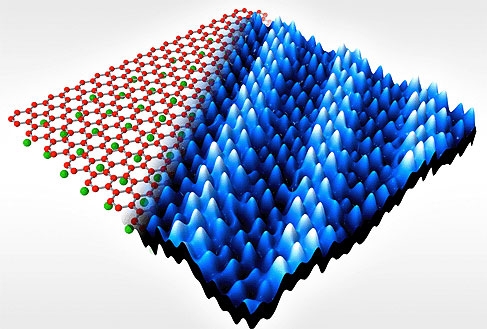High-pressure graphene press produces new crystalline structures
Researchers at Manchester University are formulating new crystalline structures at room temperature by placing compounds in a so-called nano-press made from graphene.


New research has shown that sealing molecules between two atomically thin sheets of graphene creates extreme pressure upon the molecules to modify their state, converting them to new crystals.
The Manchester University research group, led by Prof Rahul Nair, has published its findings in Nature Communications. The results demonstrate new methods of creating versatile 2D materials that have unique properties and numerous applications.
The graphene nano-press is made possible due to the material’s strength, which is greater than diamond. This allows extreme amounts of pressure to be exerted on trapped molecules without breaking the graphene layers. The two-stacked layers also create a self-sealing envelope around the trapped molecules to contain them.
In a statement, Prof Nair said: “Due to this extreme high pressure and large confinement of trapped molecules, these graphene enclosures effectively act as a nano-scale pressure cooker which works at room temperature.”
Graphene, first isolated and studied at the University in 2004, demonstrated that two-dimensional materials have extraordinary properties that could change how items such as electronics, composites, batteries are manufactured.
Register now to continue reading
Thanks for visiting The Engineer. You’ve now reached your monthly limit of news stories. Register for free to unlock unlimited access to all of our news coverage, as well as premium content including opinion, in-depth features and special reports.
Benefits of registering
-
In-depth insights and coverage of key emerging trends
-
Unrestricted access to special reports throughout the year
-
Daily technology news delivered straight to your inbox










CCC Report Finds UK Climate Targets Still Within Reach
In 1990 67% of the UK´s electricity came from coal-fired power stations and even without renewables the transition to gas was a major contributor to...